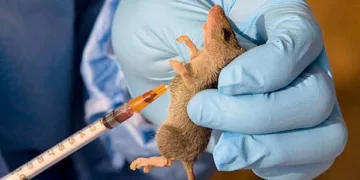You know those delicious spices used in Nigerian pepper soup? Well, they’re not just about making the soup taste great – they pack a serious punch when it comes to keeping us healthy too!
Professor Bamidele Osho, a renowned academic at the Federal University of Technology, Akure (FUTA), has shed light on the potential of Nigerian pepper soup ingredients in animal health care.
In his 162nd inaugural lecture titled “Ethnoveterinary Medicine: A Complementary Alternative in Animal Health Care,” Professor Osho emphasised the multifaceted benefits of these ingredients, ranging from antioxidant properties to disease prevention and animal nutrition.
Professor Osho shared findings from his team’s research, which focused on the potent phytochemicals present in commonly used pepper soup spices such as Aidan fruit, ginger, and garlic. Their analysis revealed a diverse array of these powerful compounds, including tannins, saponins, flavonoids, and terpenoids.
One particular finding that sparked interest was the presence of quercetin, a specific flavonoid known for its potential to prevent the formation of tumour cells across various cancer types. This discovery adds another dimension to the already known health benefits of these spices.
Professor Osho further streased the importance of the robust antioxidant properties of these phytochemicals. Their ability to combat free radicals suggests potential applications in disease prevention and animal health management. Additionally, the presence of saponins and tannins hints at potential antibiotic properties, opening doors for further research.
The don’s research extends beyond human health, highlighting the potential of incorporating these pepper soup spices into animal diets. He believes that such inclusion could promote animal growth and overall health. This finding paves the way for further exploration of the role of these spices in animal nutrition.
He said, “Notably, these phytochemicals, particularly flavonoids, demonstrated robust antioxidant properties against superoxide, which plays a role in food deterioration.
*The study revealed that the spices contained saponins and tannins, suggesting the possibility of antibiotic properties.”
The academic advocates for the integration of ethnoveterinary medicine, which utilises traditional knowledge and practices, into animal health care. He believes this approach offers a complementary alternative, particularly in resource-limited settings.
He said, “Ethnoveterinary medicine is significant in animal care because it preserves traditional knowledge, utilises local resources, respects cultural practices, provides accessible and affordable options, and contributes to the well-being of both animals and the communities that depend on them as end users.
According to him, ethnoveterinary medicine can bridge the gap between traditional and modern veterinary practices, ultimately improving animal health and welfare. He emphasises the need for further research and integration of this knowledge into mainstream veterinary services.
Professor Osho proposes several recommendations for government and communities, which include governments recognizing and supporting the preservation of traditional knowledge related to ethnoveterinary practices; empowering communities to sustainably manage and utilise their ethnoveterinary knowledge; increased collaboration between government agencies, research institutions, and local communities; developing policies to integrate ethnoveterinary practices into mainstream veterinary services; and training veterinary professionals on traditional practices and incorporate relevant aspects into formal veterinary education.




